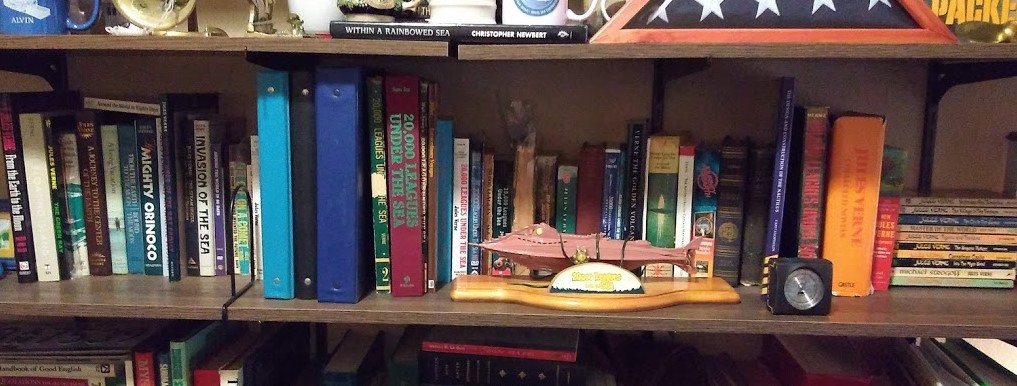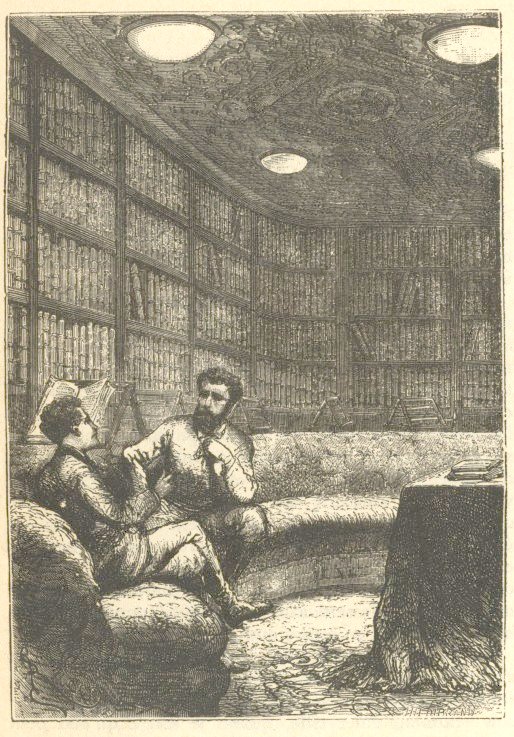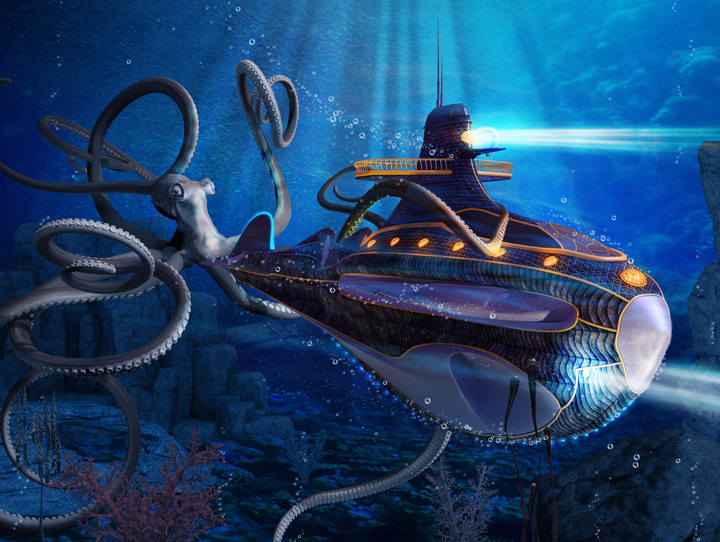On TV these days, we’re seeing the insides of a lot of people’s homes. Particularly bookshelves. If you’re an expert being interviewed by the media, it’s important to have an impressive bookshelf as backdrop behind you.
Ah, but what is an ‘impressive’ bookshelf? Let’s explore that today, so you can prepare for your next Skype call from a TV network.

I’m not that impressed by bookshelves arranged for show. If it looks like the books sit there for years without being read, that indicates a shelf intended to dazzle others, not to serve the owner.
A useful home bookshelf should have a sense of chaos, of disorder, with some books leaning, and perhaps others left horizontal. That indicates a reverence for books as things to be read, not as props to be displayed.
In Twenty Thousand Leagues Under the Sea, Jules Verne gives Captain Nemo a library aboard the Nautilus intended both to impress Professor Aronnax (and thus, the reader) and to convey a sense of frequent use by an eclectic mind.

“Tall pieces of furniture, made of black rosewood inlaid with copper, contained in their deep shelves a vast number of books uniformly bound…works of science, ethics, literature, in many languages, were in abundance…And, strange to say, these books were not grouped according to the languages they were written in, and the resultant mixture suggested that the captain could read fluently whatever books came to hand, regardless of language.”
(Well, I do have one quibble, Captain Nemo. If the Nautilus takes an angle or encounters rough seas on the surface, most of your books will fall to the floor. Bookshelves aboard the submarines I’ve seen always include moveable restraining bars to keep books in place.)

This seems a good moment to mention that both I and Kelly A. Harmon of Pole to Pole Publishing are co-editing an upcoming anthology titled 20,000 Leagues Remembered, a collection of short stories intended as a sesquicentennial tribute to Jules Verne’s novel. Submit your own story here.
Returning to the topic of bookshelves, remember—they’re meant to be used, not just seen. If a TV network calls you for a video interview, you’d like to be known as a person who reads, not just owns, books.
If you work for a news station and want to interview an expert on the use of bookshelves as background, or just desire to interview an interesting author, call me and ask for—
Poseidon’s Scribe
